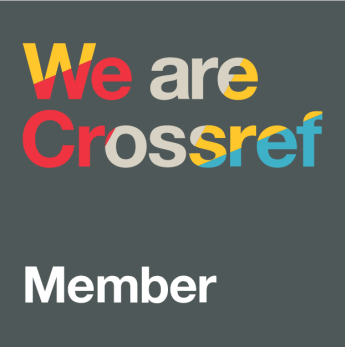METODE PENELITIAN DESKRIPTIF KUALITATIF DALAM PERSPEKTIF BIMBINGAN DAN KONSELING
DOI:
https://doi.org/10.22460/q.v2i2p83-91.1641Keywords:
Kata Kunci, deskriptif kualitatif (QD), bimbingan dan konseling.Abstract
Jenis penelitian deskriptif kualitatif (QD) umumnya dipakai dalam fenomenologi sosial. Salah satu penelitian sosial adalah penelitian bimbingan dan konseling. Penelitian deskriptif kualitatif dalam perspektif bimbingan dan konseling dapat diartikan penelitian dalam bidang bimbingan dan konseling yang tujuannya untuk menyajikan gambaran detail mengenai setting proses bimbingan atau konseling di sekolah dimaksudkan untuk eksplorasi bagaimana suatu bimbingan atau konseling terjadi, apakah bimbingan atau konseling yang telah dilakukan dapat sejalan untuk mengatasi sejumlah variabel yang berkenaan dengan masalah diteliti. Analisis data dalam penelitian kualitatif dilakukan sejak sebelum memasuki lapangan, selama di lapangan, dan setelah selesai di lapangan. Langkah langkah analisis data kualitatif meliputi reduksi data, display dan penarikan kesimpulan. Kekuatan penelitian kualitatif paling utama terletak dari fleksibilitas dari gaya peneliti untuk mendekripsikan alur penelitian dengan masalah penelitian yang sangat terbuka. Sedangkan kelemahan penelitian kualitatif terletak dari seberapa cermat peneliti menangkap momen ataupun data yang penting pada saat penelitian terjadi.
Â
Kata Kunci: Deskriptif kualitatif (QD), Bimbingan dan Konseling.
References
Basrowi & Suwandi. (2008). Memahami Penelitian Kualitatif. Jakarta: Rineka Cipta.
Bowen, G. A. (2006). Document Analysis as a Qualitative Research Method. Qualitative Research Journal, 9(2), 27– 40.
Corey, M.S., Corey, G & Corey, C. .(2010). Theory and Practice of Group Counseling. Belmont, CA: Brooks/Cole.
Creswell, J. W. (2009). Research Design: Qualitative, Quantitative and Mixed Method Approaches (3rd Ed.). Los Angeles: SAGE Publications.
Creswell, J. W. (2014). Qualitative Inquiry & Research Design: Choosing among Five Approaches (4th Ed.). Thousand Oaks, CA: SAGE.
Denzin, N. K., & Lincoln, Y. S. (Eds.) (2011). The SAGE Handbook of Qualitative Research (5th Ed.). Thousand Oaks, CA: SAGE Publications.
Gibson, R.L., & Mitchel, M.H. (1981). Intorduction to Guidence. USA: Macmillan Publishing.
Hancock, B., Ockleford, E., & Windridge, K. (2009). An Introduction to Qualitative Research, National Institute for Health Research (NIHR). The NIHR RDS EM/YH.
Heppner, P. Paul et., al. (2008). Research Design in Counseling. Thomson: Canada
Kim, H., Sefcik, J. S., & Bradway, C. (2016). Characteristics of Qualitative Descriptive Studies: A Systematic Review. Research in Nursing & Health. 40(1), 23–42. doi:10.1002/nur.21768
Mohajan, H.(2018): Qualitative Research Methodology in Social Sciences and Related Subjects. Published in: Journal of Economic Development, Environment and People. Vol. 7 No. 1 (31 March 2018): pp. 23-48.
Nazir, M. (2005). Metode Penelitian. Bogor: Ghaila Indonesia.
Polit, D. F., & Beck, C. T. (2004). Nursing research: Principles and methods (7th ed.). Philadelphia, PA: Lippincott Williams & Wilkins.
Polit, D. F., & Beck, C. T. (2009). International differences in nursing research, 2005–2006. Journal of Nursing Scholarship, 41, 44–53. doi: 10.1111/j.1547–5069.2009.01250.x
Sugiyono. (2017). Metode Penelitian Pendidikan Pendekatan Kuantitatif, Kualitatif, Dan R&D. Bandung : Alfabeta.
Syaodih, N. (2009). Metode Penelitian Pendidikan. PT. Remaja Rosdakarya : Bandung.
Witherington, H.C. (1952). Educational Psychology. Boston: Ginn & Co.
Yauch, C. A., & Steudel, H. J. (2003). Complementary Use of Qualitative and Quantitative Cultural Assessment Methods, Organizational Research Methods. 6(4), 465–481
Downloads
Published
How to Cite
Issue
Section
License
Quanta: Jurnal Kajian Bimbingan dan Konseling dalam Pendidikan is licensed under a Creative Commons Attribution-ShareAlike 4.0 International License. Authors who publish with the Quanta Journal agree to the following terms:
- Authors retain copyright and grant the journal right of first publication with the work simultaneously licensed under a Creative Commons Attribution License that allows others to share the work with an acknowledgment of the work's authorship and initial publication in this journal.
- Authors are able to enter into separate, additional contractual arrangements for the non-exclusive distribution of the journal's published version of the work (e.g., post it to an institutional repository or publish it in a book), with an acknowledgment of its initial publication in this journal.
- Authors are permitted and encouraged to post their work online (e.g., in institutional repositories or on their website) prior to and during the submission process, as it can lead to productive exchanges, as well as earlier and greater citation of published work.
























